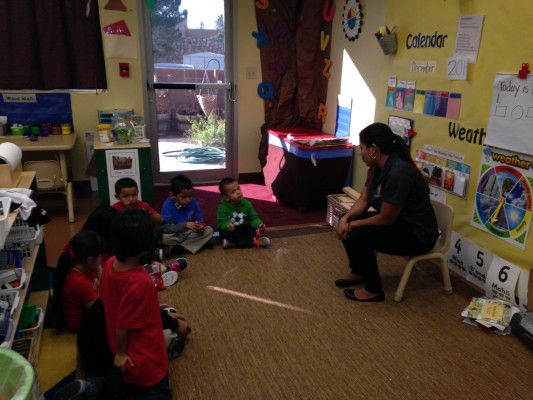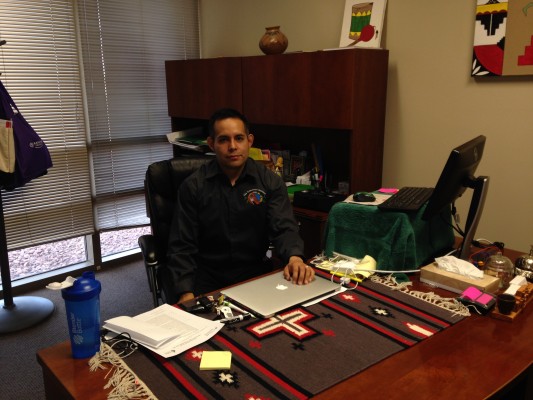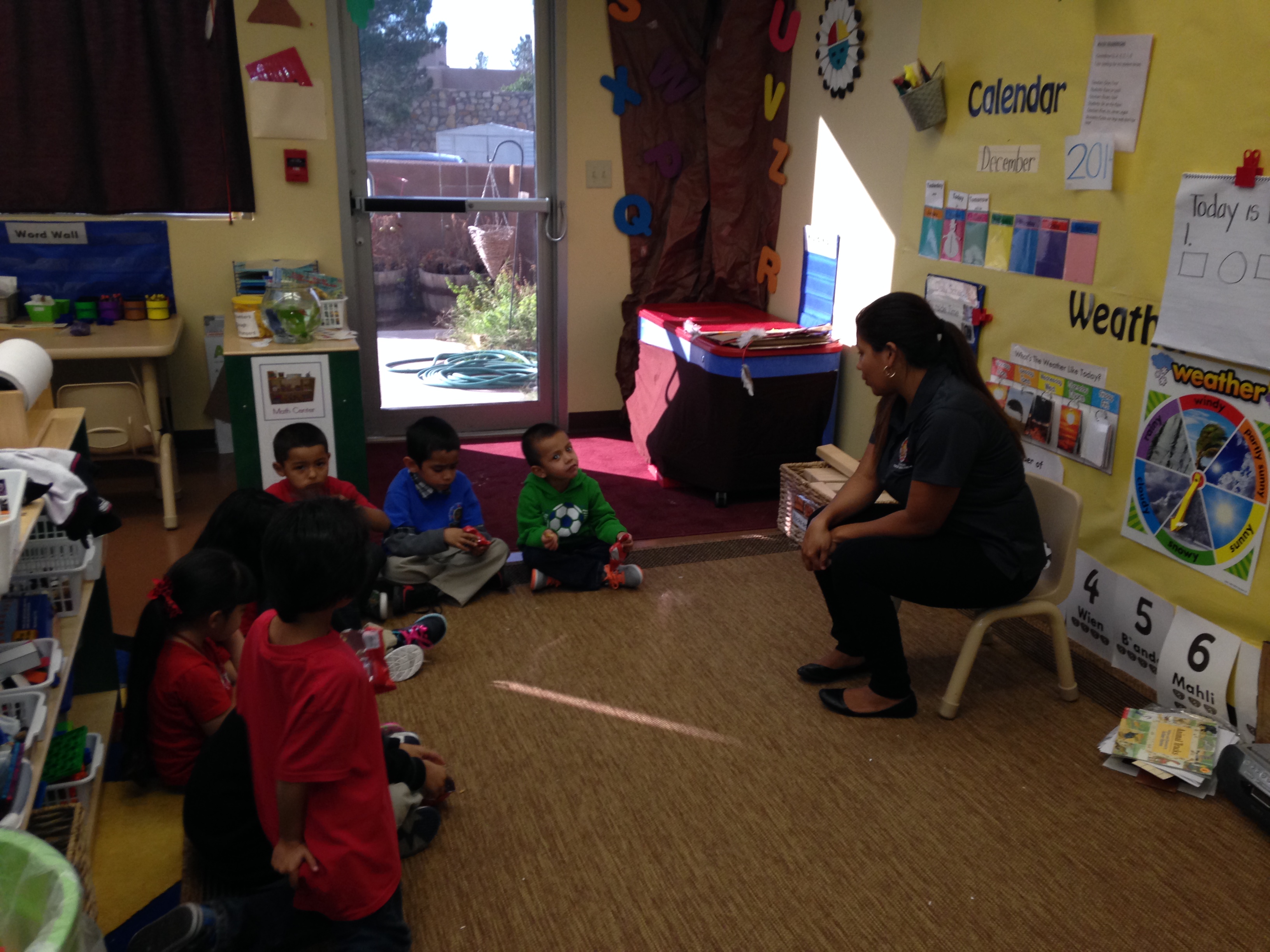EL PASO – After seven years, tribal culture still serves as the core of Ysleta del Sur Pueblo’s Empowerment Program to improve its schools, enrich its community and encourage higher education.

Anna Silvas sits with her Pre-k students to discuss the story that was read to them. Photo credit: Jeraldine Ramos
Ysleta del Sur Pueblo introduced the program in 2007 to focus on the education and employment needs of the Tigua community. The program concentrates on teaching the Tigua people how education can improve their lives and their community.
According to the Ysleta del Sur Pueblo’s website, the Empowerment Program is a “consolidation of the Tigua Indian Training and Employment Program funded by the Department of Labor WIA and the Ysleta del Sur Pueblo Education Department funded by various sources such as the Bureau of Indian Affairs.”
Tribal Empowerment Director Christopher Gomez said that when Ysleta del Sur Pueblo received a grant from U.S. Board of Education they decided to incorporate their culture into the curriculum in their pre-k program.
“Curriculum tells you what to teach content-wise, but they don’t teach you how to teach it,” Gomez said.

Ysleta del Sur students learned about agriculture and work in their own garden. Photo credit: Jeraldine Ramos
The program uses the framework of tribal culture to relate to Tigua youth in the four key education disciplines of science, technology, engineering and math (STEM). For example, lessons on making adobe houses teach engineering. Other lessons connect to their tribal traditions as agricultural people.
“We are still following our practices but we don’t have the agricultural that we used to,” Gomez said. “We kind of wanted to bring this with our gardening program.”
Even the physical education becomes an opportunity to return to grassroots by teaching social dancing. The Empowerment Program strives to teach cultural practices in a way that is educational within and outside of the tribal community.
Ana Silvas, 33, a pre-K teacher said that these programs help “by providing the children the necessities they need in order to succeed in their education by giving us more resources for them to get more out of their learning experience.”
From the 1960s through the 1980s the Tiguas saw a high rate of students dropping out of school, Gomez said.
“Now about 95-percent of freshman graduate when they get to their senior year,” he said.
In addition to helping students, the Empowerment Program provides resources to better the lives of adults in the community. Support and resources encourage people to pursue higher education and build working skills.
“Where we are still kind of lagging behind is with our higher education. Like everywhere else there are distractions and they’ll leave school a lot, but we do have a lot of successful people that are graduating,” Gomez said.

Tribal Empowerment Director, Christopher Gomez at his office in the Library and Education Center. Photo credit: Jeraldine Ramos
Often outsiders may think that people on the reservation receive a free college education and checks for living from the U.S. government, Gomez said, but that is not the case.
He explained that most of the scholarship funds for Tiguas come from enterprises within the reservation, which have amounted to $600,000 in scholarships.
The Empowerment Program created spaces for community members to learn computer skills, study for their GED or take other classes to improve their lives.
The Tigua Sense program works with pre-k students all the way through to adulthood to teach and reinforce financial literacy skills such as how to budget their spending and manage savings accounts.
Gomez said the program aims to help the Tigua community “break cycles and not to be so dependent on government and be more self sufficient.”
“Well never be able to rely on anybody else but ourselves,” he said..


